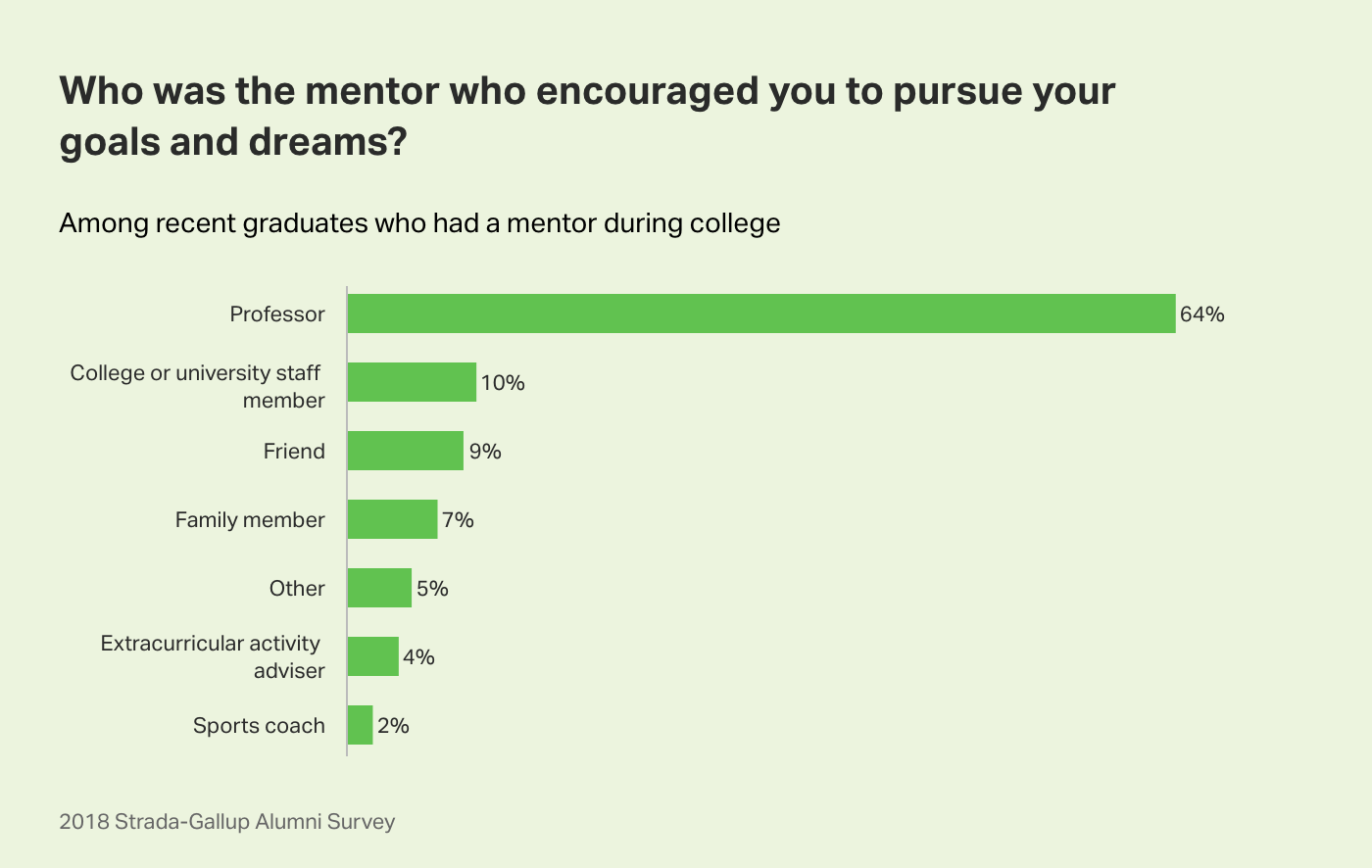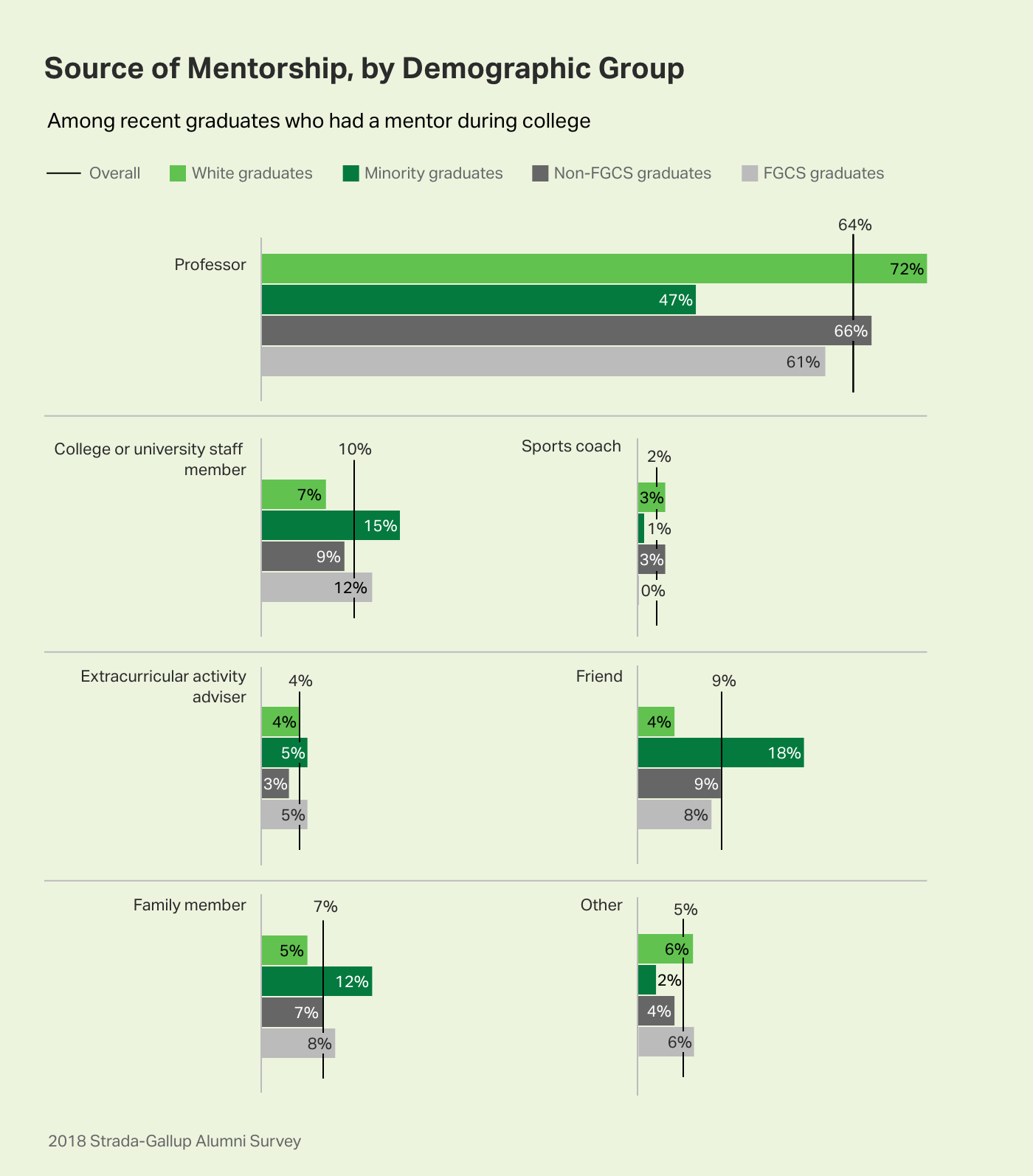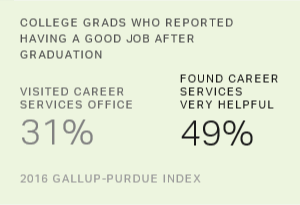Story Highlights
- 64% of graduates who had a mentor during college say their mentor was a professor
- 43% who had a mentor professor say that person taught a subject in arts and humanities
- Minority graduates are less likely than others to say their mentor was a professor
WASHINGTON, D.C. -- Nearly two-thirds of recent graduates who agree or strongly agree that they had a mentor during college who encouraged them to pursue their goals and dreams say that mentor was a professor (64%). The next most commonly cited source of mentorship is a college or university staff member (10%). All other mentions of sources are below 10%, easily making professors the predominant source of mentorship for students at U.S. colleges and universities.
Importantly, a quarter of college graduates nationally (25%) strongly agree that they had such a mentor.

These results are based on the Strada-Gallup Alumni Survey (formerly the Gallup-Purdue Index), conducted April 25-June 3, 2018, with more than 5,100 U.S. college graduates.
Arts and Humanities Professors Most Common Mentors
Graduates' professor mentors were most likely to come from an arts and humanities field: 43% of those who had a professor mentor during college say their mentor taught a subject in arts and humanities. For the purposes of this analysis, arts and humanities professors include those who taught in the following fields: art, anthropology, classical and modern languages and literature, English, ethnic/cultural studies, history, journalism/communication, music, music/art education, philosophy, political science, theater/drama, theology/religion, and women's/gender studies. Professor mentors were least likely to teach business fields of study (9%).

Minority Students Less Likely to Be Mentored by a Professor
Among recent graduates who agree or strongly agree that they had a mentor during college, minority and first-generation college student (FGCS) graduates are less likely than their counterparts to say that mentor was a professor (though professors still remain the primary source of mentorship for both groups). While nearly three-quarters of white graduates say their mentor was a professor (72%), less than half of minority graduates say the same (47%). Two-thirds of non-FGCS graduates say their mentor was a professor, compared with 61% of FGCS graduates.
Minority graduates are, however, more likely than white graduates to say their mentor was a university staff member or a friend or family member.

Implications
Studies have found professors to be particularly effective mentors -- students who had relationships with their professors boast both greater academic achievement (a short-term benefit) and higher self-confidence (a long-term benefit that extends beyond the classroom and graduation). Unfortunately, some students may be missing out on this source of mentorship. Minority graduates, in particular, are less likely to be mentored by professors.
Prior research has suggested that mentees seek mentors with similar experiences and backgrounds, and that minority students often seek mentors of the same race/ethnicity and find information more helpful when their mentor is of the same race/ethnicity. Unfortunately, minority professors remain underrepresented in higher education. Findings from the Strada-Gallup Alumni Survey suggest that the continued commitment to diversity in higher education faculty and staff is important to expanding the percentage of mentorships and high-quality mentor relationships between minority students and professors or other staff members.
Read the 2018 Strada-Gallup Alumni Survey report, Mentoring College Students to Success.
Learn more about how the Strada-Gallup Alumni Survey works.





